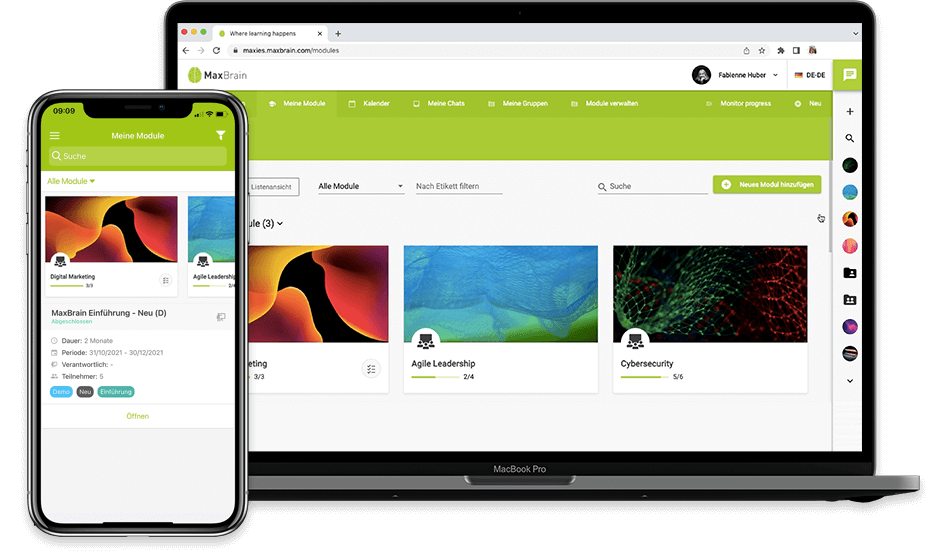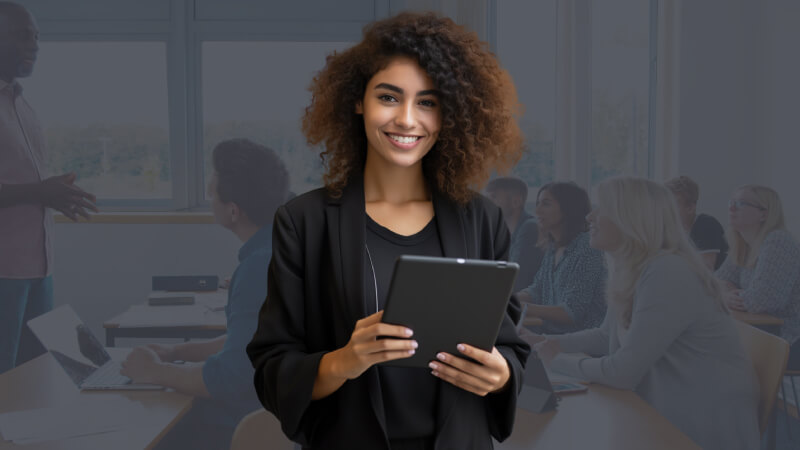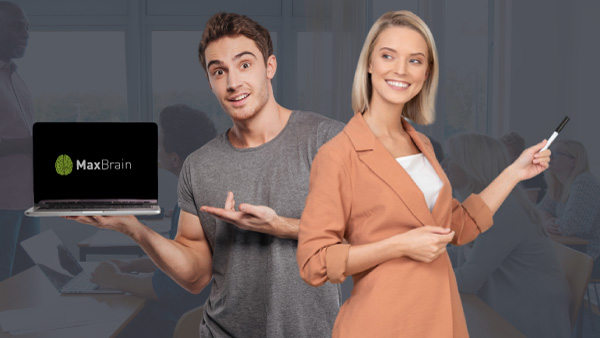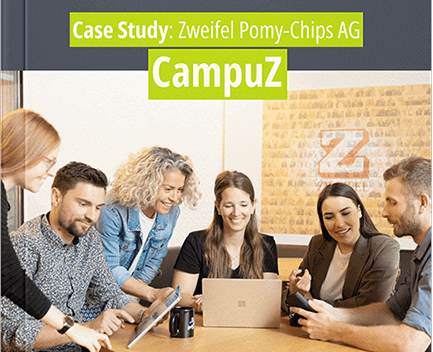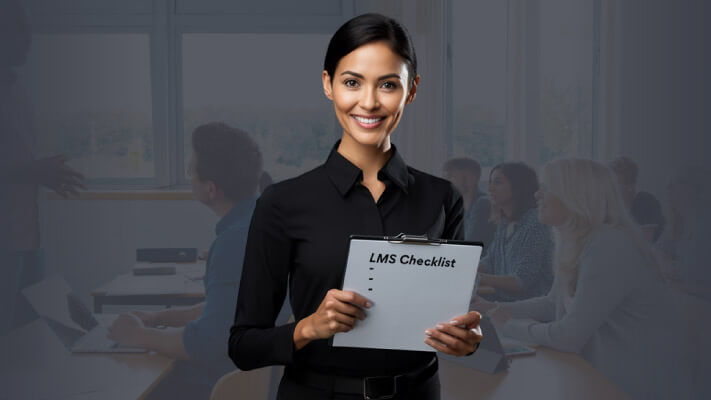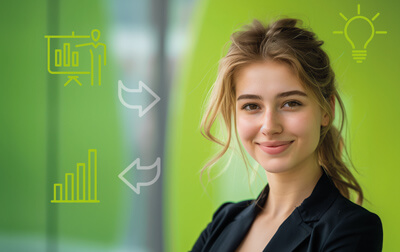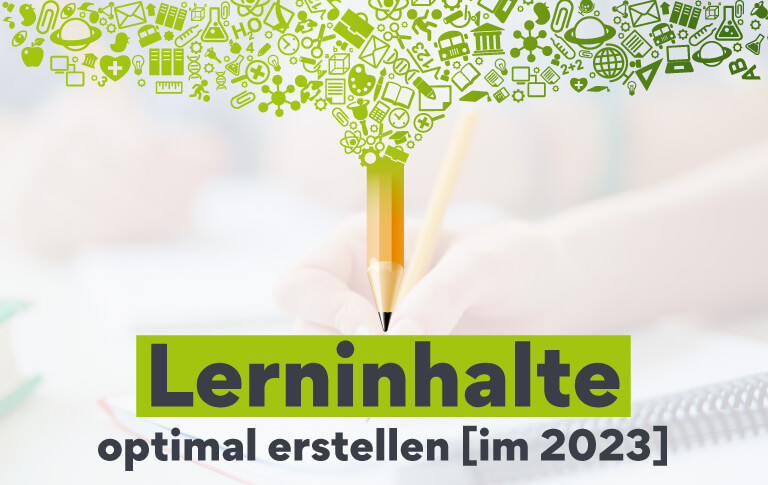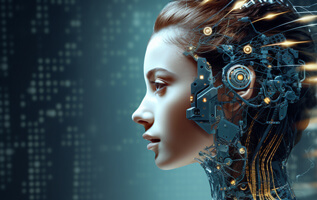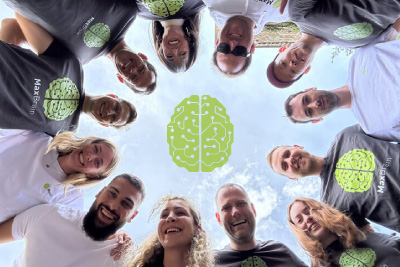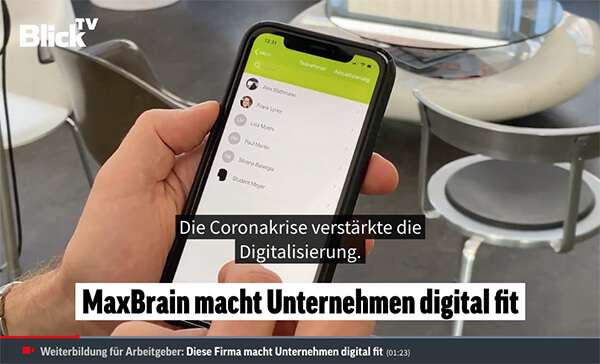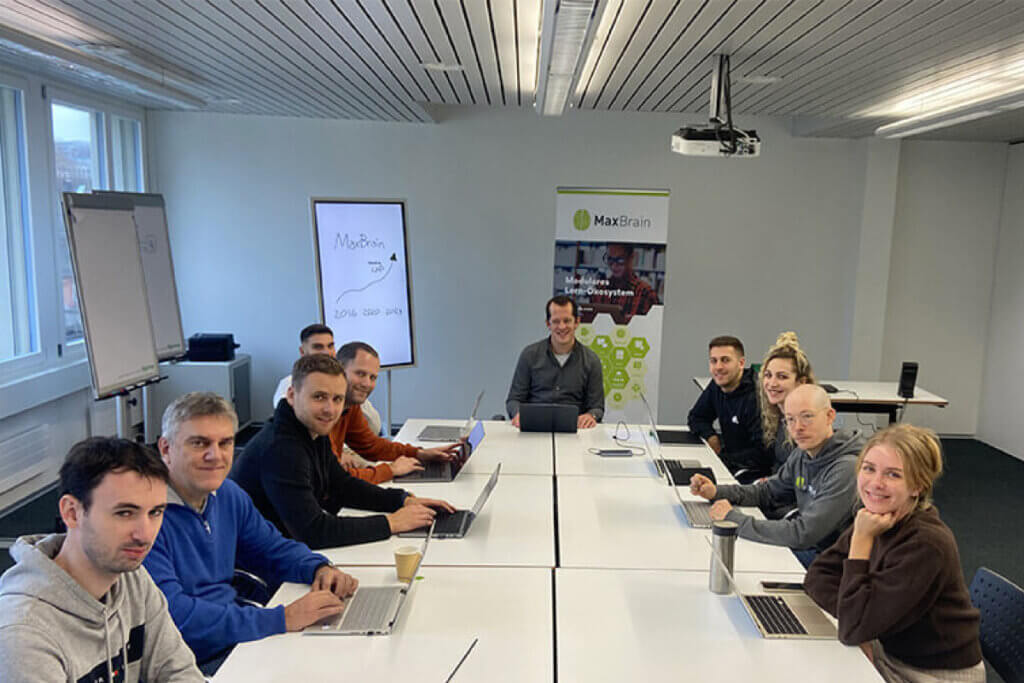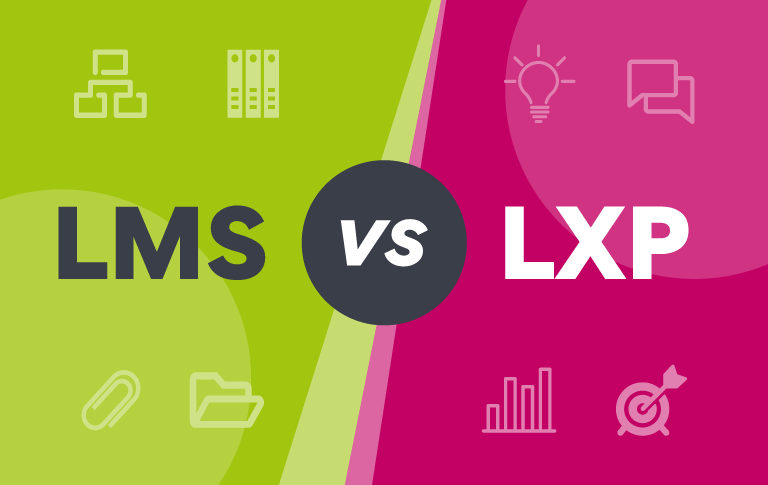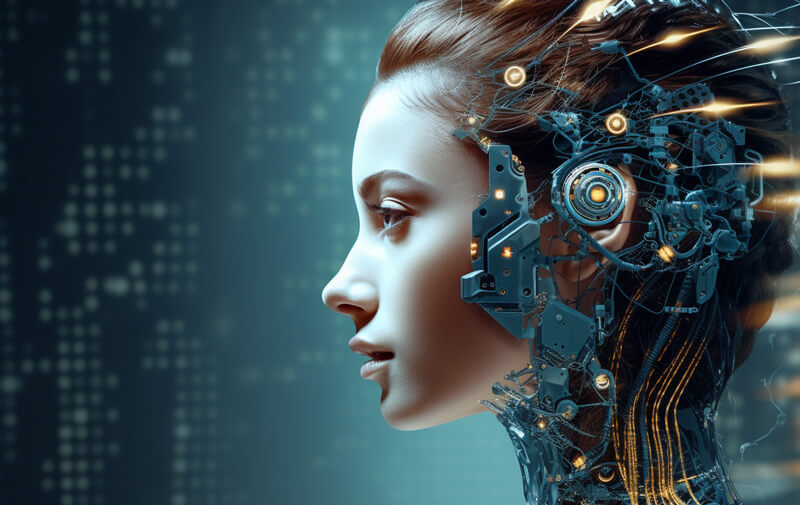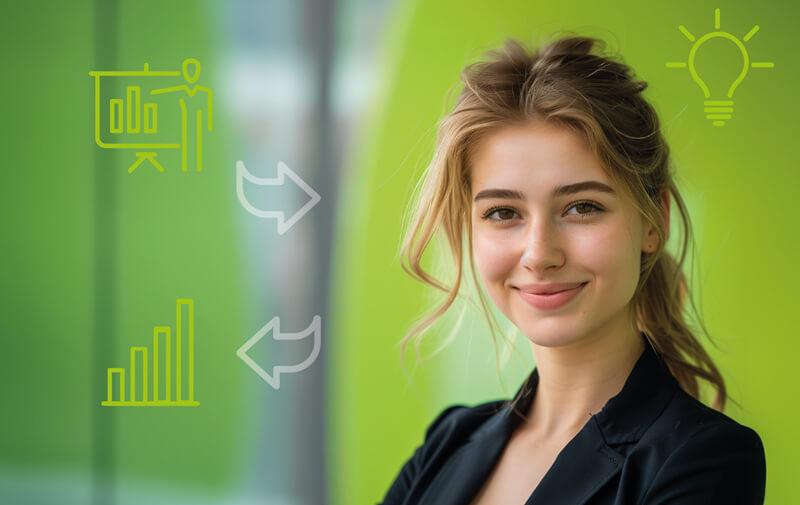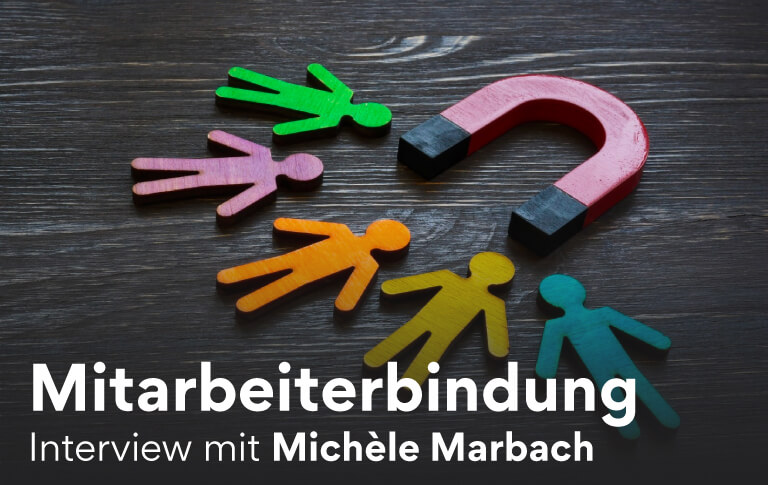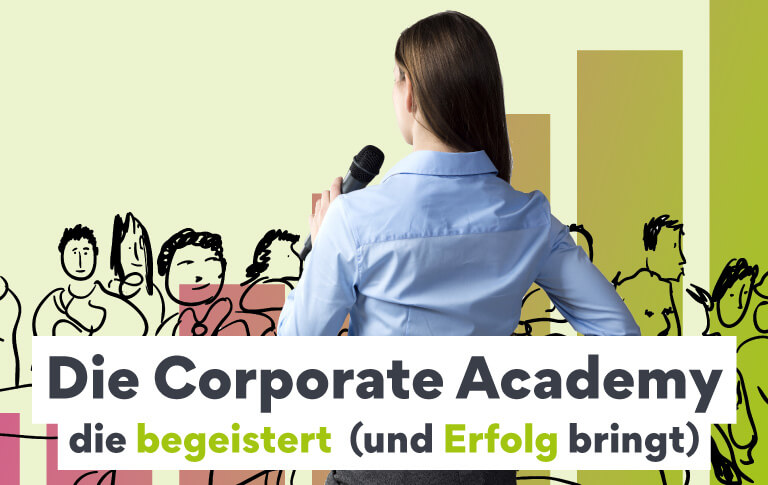LMS vs. LXP (summary)
This article is about the difference between a Learning Management System (LMS) and a Learning Experience Platform (LXP)
An LMS serves the needs of administrators and teachers. An LXP, on the other hand, focuses on the needs of learners.
The distinction is blurred: every LMS offers a learning experience. Strictly speaking, the question is what constitutes an "ideal" learning experience.
1. an LXP places the wishes of learners in the foreground. First and foremost: knowledge, easier and faster learning.
2. learning content: The difference lies in the personalization.
3. data-supported, personalized recommendations are the basis of an LXP compared to a conventional LMS.
4 The next stage of personalization is adaptive learning, i.e. personalized learning paths.
5. social learning: The community of learners is important and valuable for the ideal learning experience.
6. to be expected in the near future: the personal (24/7 A.I.) coach for the ideal learning experience.
7 Optimize, optimize, optimize: Support from experienced experts is a critical component for success in creating the ideal learning experience.
Introduction: LMS vs. LXP
The distinction between LMS and LXP is an insider discussion among EdTech specialists. The public hardly takes part in this discussion.
However, it concerns the question of how education works at all. It is about a change of perspective of far-reaching importance.
In any case, the general difference between LMS and LXP is quickly explained:
A Learning Management System (LMS) is a system designed to help organize learning.
Learning content, learning paths, quizzes, surveys, user data or entire learning initiatives are managed in an LMS.
A Learning Experience Platform (LXP) takes its starting point from the individual learners themselves.
An LXP follows the idea that learning is an experience. And this experience should be optimally designed and aligned with the needs or goals of the learners.
An LMS is geared towards the needs of administrators or teachers who organize learning. An LXP, on the other hand, focuses on the individual person who is learning.
LXP is the education and training industry's answer to the megatrend of personalization.
Learning is a personal experience.
The distinction between LMS and LXP is blurred
In the EdTech industry, the concept of LXP is seen as the next step - away from the static learning environment of an LMS, towards the dynamic individuality of the learner.
A whole range of LMS providers therefore like to position themselves as learning experience platforms.
However, the distinction between LMS and LXP is anything but clear:
Even an untested, carelessly thrown together collection of banal, irrelevant learning content offers a learning experience for the learner.
A miserable learning experience is still a learning experience.
The fact is:
An LMS always offers always a learning experience.
The range between a "miserable" and an "ideal" learning experience is also arbitrarily granular.
Therefore, the question is precisely what makes the difference between a "conventional LMS" and one that is geared towards the "ideal learning experience" platform.
Less demanding demand:
How can an LMS fulfill the criteria of an ideal LXP ?
In this article, we address these questions and the potential that a Learning Experience Platform (LXP) offers compared to a conventional LMS.
The personalization of all areas of life will increase significantly in the future: The latest developments in artificial intelligence and adaptive learning in particular are undergoing an extremely dynamic upheaval.
It may well be that the idea of what constitutes an ideal learning experience will look different in just a few years' time.
We therefore want to focus on the criteria that are most likely to remain relevant in the future.
1. an LXP focuses on the needs of learners.
An LMS that not to the needs, goals and potential of learners is unlikely to provide an ideal learning experience.
But what do learners actually want?
We were all learners.
We only have to remember what we ourselves wanted - back when we were at school or university or in training.
The most important wishes and goals could be presented as follows
"All people strive for knowledge", as Aristotle recognized 2,400 years ago.
Knowledge is inspiring.
Knowledge means more possibilities.
Opportunities mean more freedom.
In contrast, the path to knowledge, learning:
Learning in and of itself is not a primary interest of learners.
On the contrary:
Learning is often quite tedious.
Because learning - the path to knowledge - is usually laborious, learners are always interested in how they can faster and easier learning.
For the sake of brevity, the other interests and needs of learners listed above will not be discussed here.
Other key points of an ideal learning experience: learning content, recommendations, adaptive learning, social learning, mentoring and optimization of the learning experience.
2. learning content: The same for everyone vs. personalized
Learning content forms the core of every learning platform, every LMS and every LXP.
We have explained in detail what you should look out for in learning content in the blog article "Creating the best learning content for your LMS [Checklist 2023]".
It is worth remembering the following graphic to differentiate between LMS and LXP:
This graphic illustrates what relevant learning content actually is.
The "ideal learning experience platform" offers learners exactly the learning content that is relevant to them at that moment.
Relevant content depends on the level of knowledge of each learner.
If the learning content is already known, too simple or even banal, the learning experience is immediately negative or at least not ideal.
If learners are overwhelmed by learning content that is too demanding, the learning experience may not be ideal.
The special challenge for an LMS that wants to distinguish itself as an LXP:
Learners often have very different levels of knowledge and interests. Therefore, the relevance of learning content can ultimately only be assessed individually and personally - from person to person.
The mindset of "conventional LMSs" is not primarily focused on the relevance of learning content:
The "Learning Management System" is primarily about the most efficient, centralized administration of learning content, quizzes, learning assessments, course data etc. possible.
Organizational questions such as: Where can I find which learning content? How do I set up my courses? How do I communicate with the learners? are more likely to be among the immediate tasks of administrators or teachers.
And:
Providing personalized learning content or learning content types that make learning faster and easier may require more work than putting together a run-of-the-mill course that can be pushed on learners for years.
The fact is:
The primary interests of administrators and teachers are not the same as those of learners.
This problem not only affects the education and training sector or the EdTech industry, but also primary education. The entire education system still takes insufficient account of the individuality of learners.
A few years ago, the late Sir Ken Robinson, in his highly acclaimed TED Talk Do schools kill creativity? clearly recognized this problem:
For as long as there have been schools, basic, further and continuing education have suffered from the conflict between uniform, repetitive learning content in contrast to the individuality and creativity of learners.
How do you solve this difficult problem?
The answer is:
By focusing education policy, curricula and teachers more on the needs, goals and potential of learners. LMS providers have the task of providing technical support to the education system in such a way that an ideal learning experience can be provided as quickly and easily as possible.
The latest developments in artificial intelligence and large language models such as ChatGPT, image creation programs such as Midjourney or video generators such as Pictory will lead to a tremendous acceleration in the provision of learning content in the context of an LXP.
The discussion of artificial intelligence is, of course, beyond the scope of this blog article and will be dealt with elsewhere.
In general, it can be said that the learning content of a learning ideal learning experience should have the following characteristics:
- Data-supported, personalized recommendations of learning content
- Features and functions to make learning easier and faster
- Supporting teachers in providing versatile learning content by integrating artificial intelligence or services related to learning content.
- Features and functions to promote communication between teachers and learners.
- Adaptive learning: possibility to personalize learning paths
We would like to briefly discuss a selection of these points here.
3 LMS vs. LXP: Data-supported, personalized recommendations
Data and analyses are the starting point for being able to objectively assess what an ideal learning experience consists of.
Edwards Deming's famous saying applies:
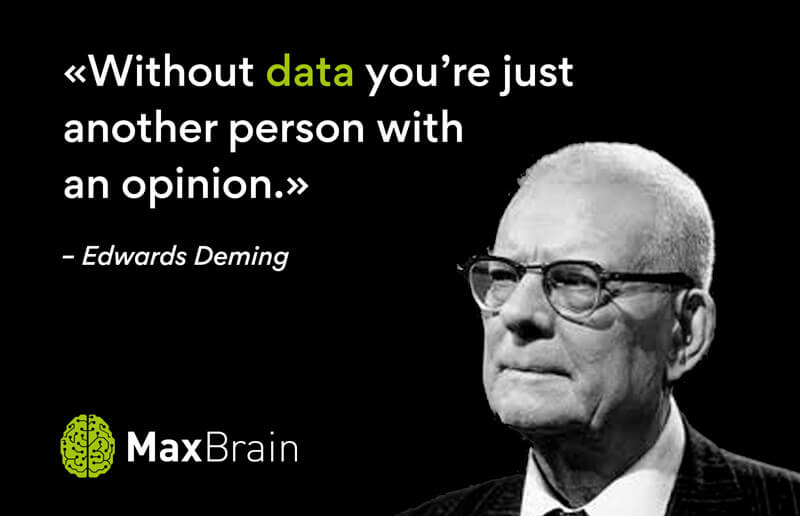
What data can an LMS collect and analyze to enable an ideal learning experience?
We generally recommend collecting as much data as possible: You never know in advance exactly which data is relevant and whether seemingly unimportant data can be used for better recommendations.
The following 4 data groups are relevant indicators for course recommendations for corporate academies for the training and further education of employees and for learning platforms of training centers:
- Personal data: Age, gender, language, location,
- Professional background or position
- Specifications according to course bookings or departmental targets
- Click behavior and other indicators when using the platform
- Experience of the LMS provider
The first three data groups are more or less self-explanatory. This data is already known before a person even starts learning.
More exciting are the click behavior and other web indicators, as well as the experience of the respective LMS provider.
An LMS that is based on the idea of an ideal LXP works in a similar way to Netflix.
At Netflix, click behavior, views and search queries are precisely analyzed in order to display the most interesting content for each customer.
This is exactly how an LMS that provides relevant recommendations for learners should work.
At MaxBrain, we follow this principle with the "GROW screen", which suggests targeted courses, learning content, learning nuggets, blog posts, etc. to learners:
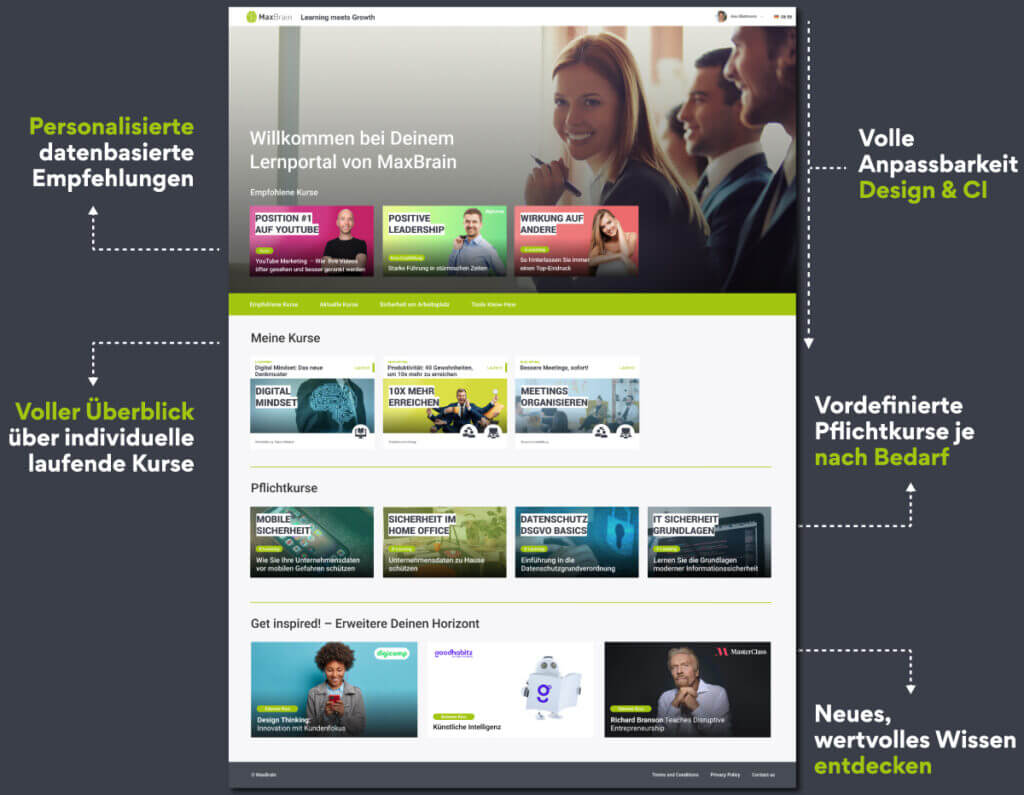
The most important data that are decisive for course recommendations:
- Number of pageviews
- Number of clicks per course recommendation
- Click-Through Rate (CTR): Ratio of clicks to page views
- Frequency: Frequency with which course recommendations were shown
- Dwell time: Dwell time on individual pages
- Course bookings
- Conversion rates, e.g. the ratio of course bookings to clicks
- Other relevant dates for course recommendations
Anyone who is familiar with online marketing will quickly recognize these key figures:
An LXP can be compared with traditional marketing platforms in terms of course recommendations. The more precisely you know the profile and behavior of the users, the better you can recommend content.
In contrast to the large marketing platforms, the numbers of LMS/LXP users are often manageably small. - Small and possibly not very meaningful.
This problem can be solved if an LMS/LXP provider offers a modern cloud solution that enables cross-customer data analysis.
Those who would rather follow the idea of an ideal LXP should consider the following:
An LMS/LXP provider that knows the best courses and learning content across customers is more likely to be able to recommend the best learning content.
4. next level: adaptive learning for personalized learning paths
Adaptive learning takes the components of an ideal LXP discussed in this blog article and the difference to a conventional LMS to a new, sophisticated level.
Instead of just recommendations, entire learning paths are now to be adapted to the individual needs, abilities and learning behavior of learners.
This is achieved through the continuous analysis of data collected about learners, including their performance, progress and behavior on a learning platform.
The most important ideas of "adaptive learning" include
- 1. personalization: learning strategies, teaching content, learning paths and learning pace should adapt dynamically to the specific requirements of each learner.
- 2. progress tracking: Adaptive learning platforms continuously evaluate the progress of learners and collect data on their performance, strengths and potential for improvement.
- 3. feedback and assessments: Learners should automatically receive constructive feedback based on their learning success or potential for improvement thanks to their data.
"Adaptive learning" is a relatively old idea that was formulated back in the 1970s.
Thanks to the rapid advances in artificial intelligence, adaptive learning is becoming increasingly likely.
From the perspective of learners, "adaptive learning" sounds very sensible. - From a teacher's point of view, it is challenging, but feasible in the future thanks to artificial intelligence.
The idea of "adaptive learning" is closely related to or even identical to the idea of an "ideal learning experience platform" discussed in this blog article.
To some extent, the idea of personalized learning paths and learning processes can certainly be implemented without complex algorithms.
At MaxBrain, we are increasingly seeing the need for personalized learning paths or even entire learning initiatives, especially when it comes to designing and implementing corporate academies whose employees sometimes have very different levels of knowledge.
5. social learning: ideal learning experience in the community
In one of his brilliant lectures this year, in April 2023, Dr. Prof. Pierre Dillenbourg from the EPFL in Lausanne showed the audience the following photo and asked which of these children learn more successfully:
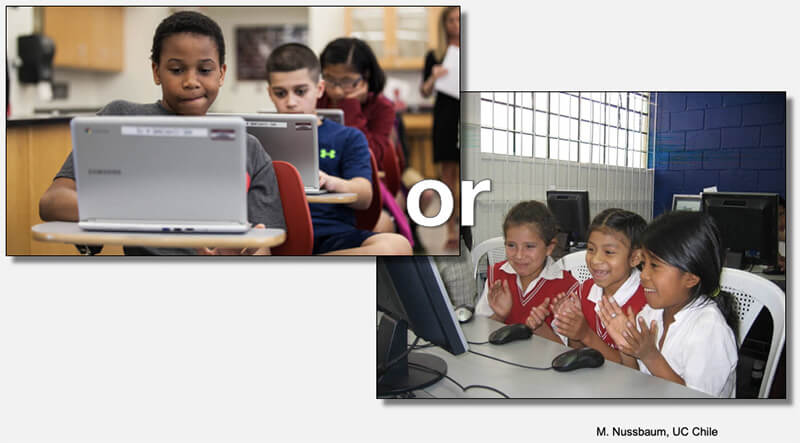
Unsurprisingly, according to the EPFL studies, children who learn together are much more successful in terms of learning outcomes, at least before puberty.
And there is every indication that the adults - slightly taller, often less creative children - also benefit from social learning.
Social learning has various advantages and characteristics:
- Learning via group chats: Communication with other learners or teachers regardless of time and place.
- Learning via blended learning, i.e. a combination of (physical) face-to-face teaching and online learning.
- Learning through observation: Particularly relevant with children, but of course also among adults, for example when new employees look over the shoulders of their trainers as part of an onboarding program.
- Learning by working together on a project.
An LMS that is geared towards an ideal learning experience takes into account the potential of these learning formats and offers functions to organize them optimally.
6. the personal (24/7 A.I.) coach for the ideal learning experience
In many places, new employees who are in the onboarding process are supported by colleagues or superiors to learn faster or better what the work consists of and how best to solve their respective tasks.
Mentors are usually decisive for the question of whether someone needs 2 weeks or 2 months to be productive for a company.
Teachers also have the task of supporting and "coaching" learners in basic and higher education.
An LMS that is interested in the learning success of learners takes the possibility of mentorship into account with features and functions - e.g. chats or integration of calendar functions, customizable learning programs, etc.
And that's just the beginning.
Mentorship, coaching and learning support will soon take on completely new forms:
It can be assumed that in the not-too-distant future, everyone will have their own personal mentor or coach powered by artificial intelligence.
Too futuristic a thought?
We don't think so:
There are already companies working on the vision of a 24/7 personal learning coach driven by artificial intelligence.
For example, in May 2023, the founder and CEO of the highly successful Khan Academy in the USA, Sal Khan, recently presented this idea at a TED talk:
The idea that every human being has a constant, intelligent companion that ensures that valuable knowledge is gained step by step sounds frightening to some and fascinating to others.
It is easy to see why this vision has the potential to revolutionize the entire education system.
At MaxBrain, we belong to the group that is fascinated by such approaches and is happy to integrate advanced technologies into our LXP. The prerequisite for this is an open integration platform that allows seamless integration of third-party technologies and services.
Nobody knows what the future holds.
The development of data-driven, personal learning coaches as a perspective towards an ideal learning experience is very likely.
7 Optimize, optimize, optimize: Service as a critical component for the ideal learning experience
An ideal learning experience does not fall from the sky.
The motto is: optimize, optimize, optimize.
Only through continuous optimization does an LMS have the chance to develop into an ideal learning experience platform.
The process is easy to explain:
In practice, this process means
If you "only" buy an LMS - a software - without services that help to optimize the learning experience, you will hardly be able to take exciting or at least goal-oriented learning initiatives.
It's not just about traditional customer support that helps out with questions.
It is about proactive support from experienced education experts to optimize a learning platform until it leads to the best possible learning outcomes.
At MaxBrain, we call this department "Customer Success". The name says it all.
The general recommendation:
If you want to create an ideal learning experience using an LMS, you should consult experts or work with an LMS provider that proactively supports customers in creating the optimal learning experience.
Questions for you:
Did you like this article?
If so, please share this article on your social media channels. Thank you very much!
